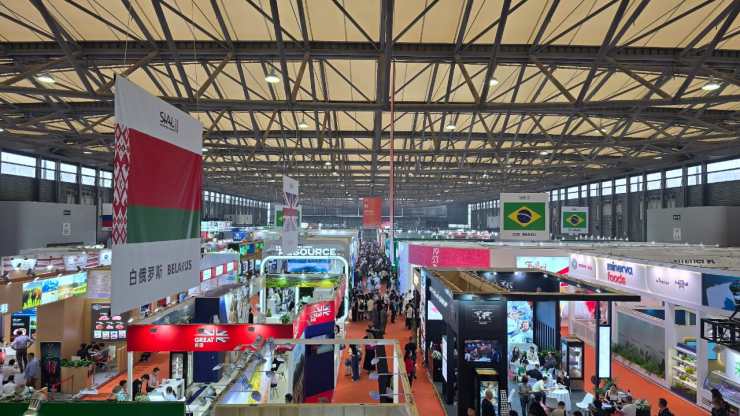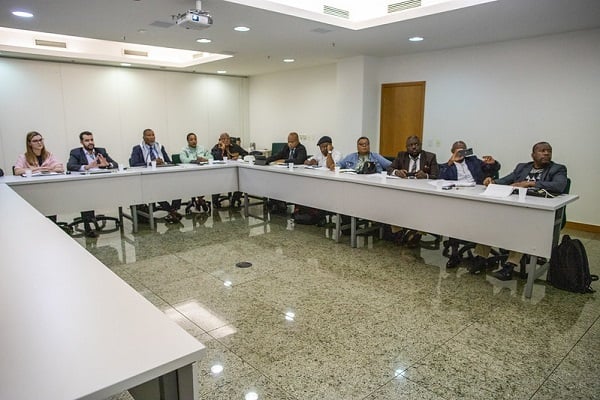The Mato Grosso Soybean and Corn Producers Association (Aprosoja MT) has stepped up its efforts to guide rural producers on the need to ratify the registration of properties located in the border area, an area up to 150 km from the border between Brazil and Bolivia. With the deadline for ratifying titles ending in October 2025, the entity released an explanatory booklet, held a live broadcast with an expert on the subject and continues to promote awareness on its social networks, regional centers and direct service channel for producers.
According to the administrative director of Aprosoja MT and coordinator of the Agricultural Policy Commission, Diego Bertuol, the mobilization aims to ensure that producers are not surprised by the loss of title to their land. “Aprosoja Mato Grosso uses our organization’s communication and marketing channels to ensure that this information reaches producers, so that those who have this problem can seek more information without leaving their property.”
The live broadcast held by the Commission was attended by Dr. Rosângela Poloni, registrar of the First Office of Porto Esperidião and specialist in notarial and registration law. On the occasion, she detailed the step-by-step process of the ratification process and warned about the risks of not meeting the deadlines and legal requirements.
“It is very important that we raise awareness among producers so that they know about the need for ratification in order to have regular documentation. Producers should seek out property registration offices to obtain information, receive guidance on which documents are necessary, gather these documents, set up the procedure and obtain the ratification endorsement on rural properties,” highlighted Rosângela, who also emphasized that regularity contributes to the development of border regions.
Diego Bertuol also emphasizes that Aprosoja MT is available to support members with questions. “We have a prepared team in the Agricultural Policy Committee, in addition to the Producer Channel that answers by phone. Our role is to guide and ensure that the producer has access to information and tools so that he does not run the risk of losing what is his due to lack of regularization”, he states.
The Agricultural Policy Committee is one of the entity’s most strategic fronts, as highlighted by the director. “The committee contributes to the development of public policies, and also acts as a dialogue between the government and entities. With our 32 regional centers, we are able to capture the demands of the base and bring them to the technical and political debate”, he adds.
Despite the organization's efforts, producers report challenges in starting and completing the ratification process. In Comodoro, a municipality located entirely within the border area, producer Marco Sebben says that the main difficulty is information about the process. “The difficulties we have seen are the lack of knowledge, as producers do not have the information, and there is a lack of training, both legal and notary personnel. We see a lot of difficulty due to the lack of a process; the way it is done is still not very clear, but we already have some law firms that are managing to do it and are having good results,” he says.
Marcos Sebben, also acts as coordinating delegate of the Vale do Guaporé Nucleus of Aprosoja MT and reinforced the work that the entity has developed.
“As a coordinating delegate, wherever I have been, I have talked to producers, given importance to this issue and publicized it, because it is something very serious, something that will be extremely important. And Aprosoja MT has also been doing this publicity work, but it is essential that producers who have questions seek information from their legal advisors, from the administrative department, and seek new information so as not to be caught off guard, to avoid the risk of losing their land and having greater problems,” said the delegate.
Another producer from the same region, Paulo Adriano, reports that he managed to ratify some registrations on his properties, but recognizes that the process is not simple.
“We had to ratify all of my properties, and this has been a matter of concern to us for a long time, ever since the legislation came into effect. This process is somewhat complex. We were forced to hire legal counsel from the municipality, and we also hired technical counsel to prepare the report. It is not an impossible process to complete the steps, but there is expense and some difficulty, because in addition to the counsel, you need to involve both notary offices: the 2nd Notary Office to prepare the notarial deeds and the 1st Notary Office to register the ratification in the property deeds. So this entire process takes a while to complete,” he explains.
Paulo says that, so far, he has not faced any difficulties in obtaining credit, but he believes that this should change with the end of the deadline and warned producers to seek regularization. “The suggestion we make is that producers, regardless of whether the deadline is extended or not, immediately begin the process, get informed about it, seek out professionals who are already familiar with the procedure, so that, regardless of whether the deadline is extended or not, this ratification can be carried out and not put at risk the assets, the history of families there who have owned these frontier properties for four, five, eight, ten, fifteen generations,” he said.
Aprosoja MT reinforces the warning that ratification of titles is mandatory for properties originating from alienations or concessions made by the states, with the exception of those already ratified by the National Institute of Colonization and Agrarian Reform (Incra). Properties with up to 15 tax modules follow a simpler process. Those that exceed this limit must present georeferencing, prove social function and gather several technical and legal documents. Properties with more than 2,500 hectares, in turn, require approval from the National Congress, which has not yet established anything regarding ratification.
The entity also filed a document this Monday (31.03) with the Parliamentary Front for Agriculture – FPA in the National Congress, requesting an extension of the deadline for ratification, as well as the importance of the National Congress defining procedures for properties above 2,500 ha.
In addition to this scenario, the entity warns that unratified properties may be incorporated into the Union's assets, which represents the loss of title and legal security. To avoid risks, Aprosoja MT recommends that producers seek out the notary's office in their region and immediately begin the regularization process. Questions can be clarified through the Producer Channel: (65) 3027-8100.




